Abstract
There have been growing calls for more education in genetics for the public and in schools. However, studies of the public, school children, and those who have received genetic counselling show that understanding of scientific genetics is very limited. A hypothesis to explain this limited understanding is proposed and tested. It is argued that there is a widespread lay knowledge of inheritance which conflicts in a number of aspects with scientific explanations and which impedes the assimilation of the latter. It is suggested that this lay knowledge is derived from concepts of the social relationships of kinship. Concepts of kinship ties are sustained by everyday social activities and relationships which may make them resistant to change. A prediction which follows from the hypothesis that the lay understanding of genetics is derived from concepts of family and kinship relationships is that closeness in genetic terms will be determined by the closeness of the family ties of social relationship and social obligation. While the proportion of genes shared with parents, children, and sibs is, on average, the same, kin relationships and obligations are much stronger between parents and children than between sibs. The hypothesis was tested in a questionnaire study of two samples of adult women (n = 64 and n = 113) and one of social science students (n = 73). In all three groups a higher proportion of subjects gave the correct response for the proportion of shared genes with a father and child than with a sister, uncle, or grandmother. In the cases of sisters and uncle (and grandmother), there was a consistent tendency to underestimate the degree of genetic connection as predicted by the hypothesis. Answers to other questions are consistent with the hypothesis. The fundamental implications of the hypothesis for genetic education in the clinic and classroom are outlined.
Full text
PDF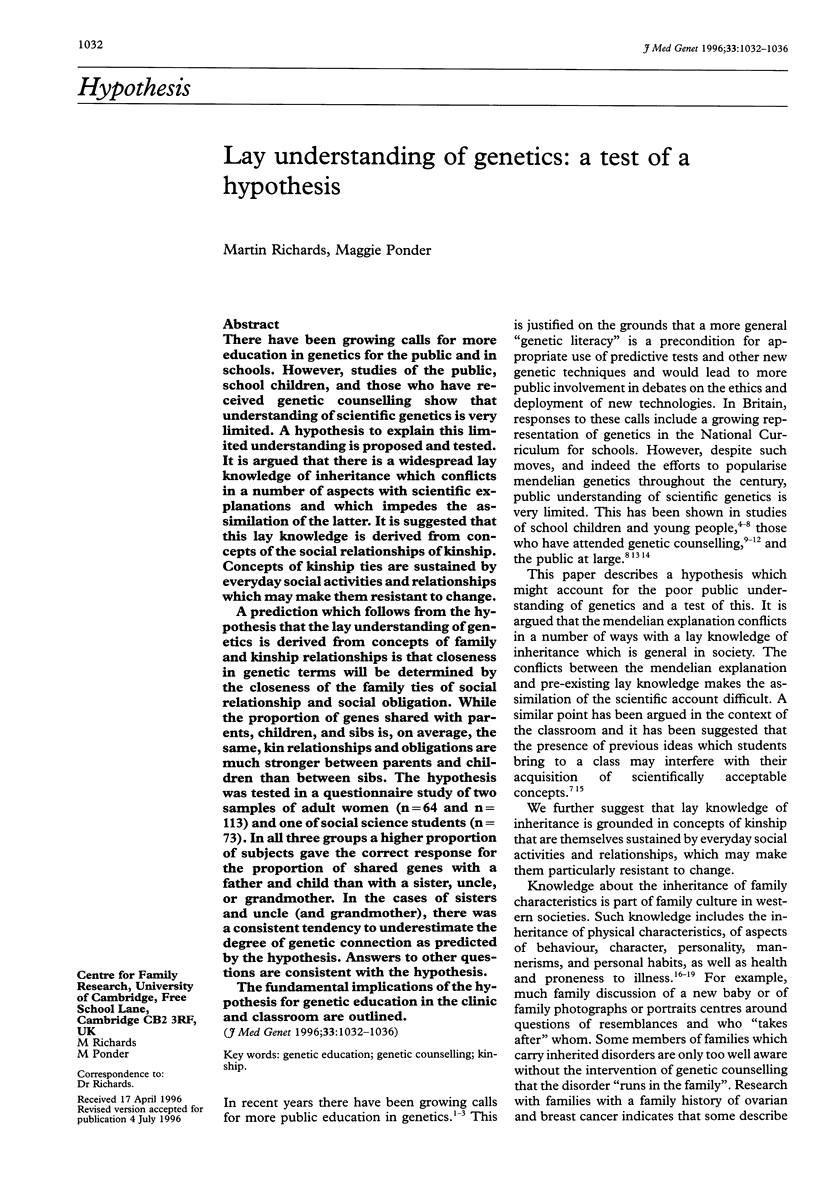
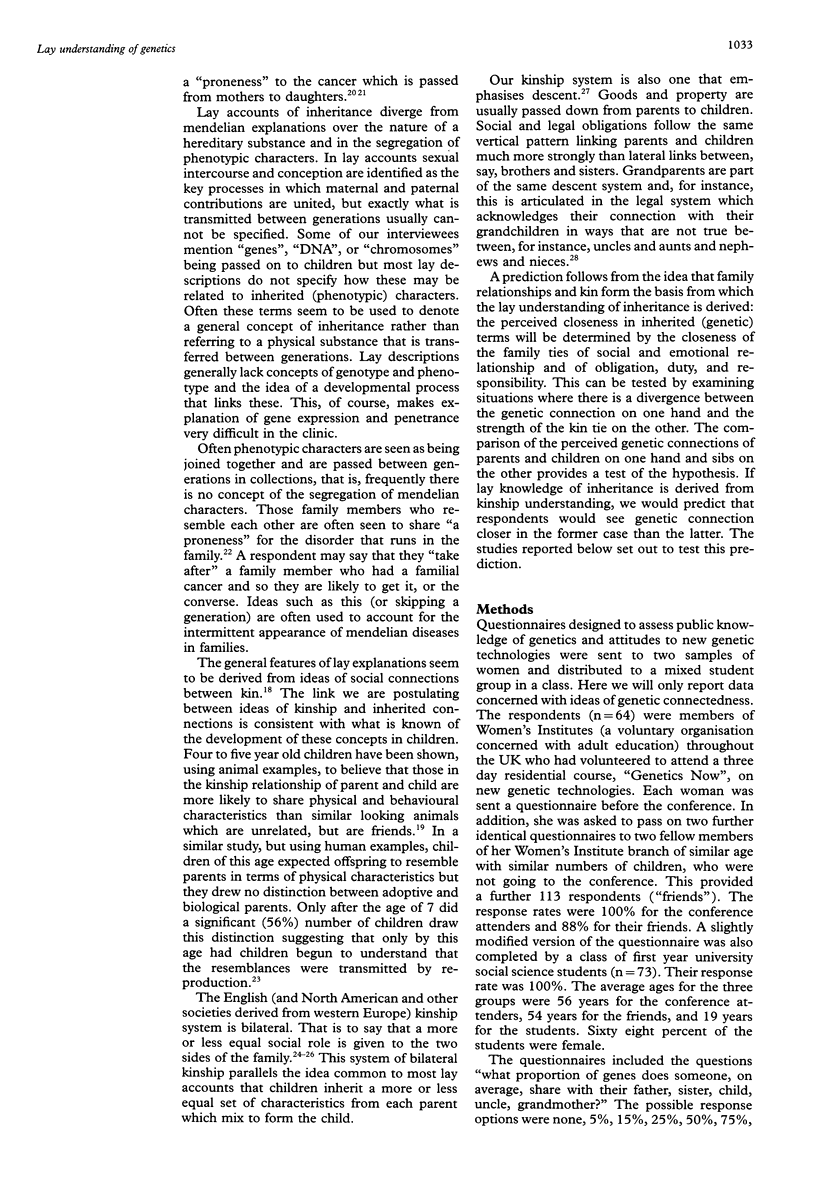
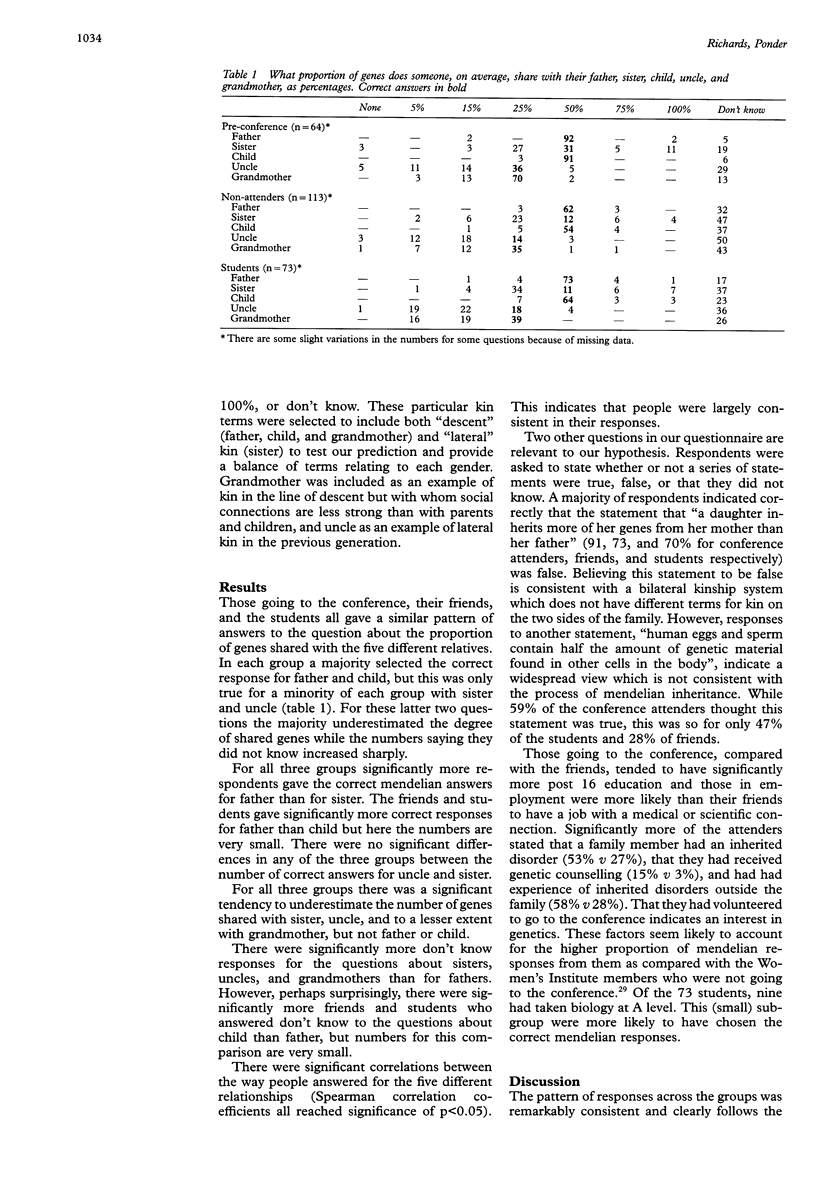
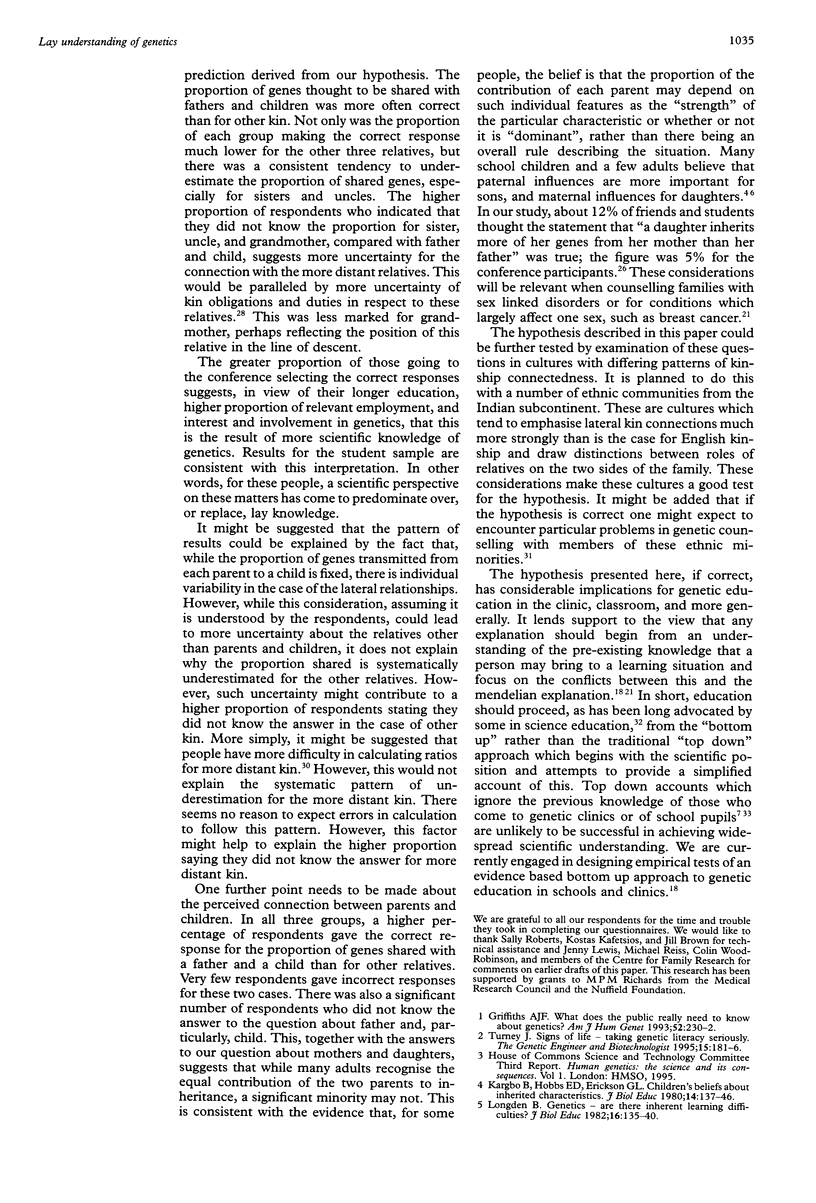
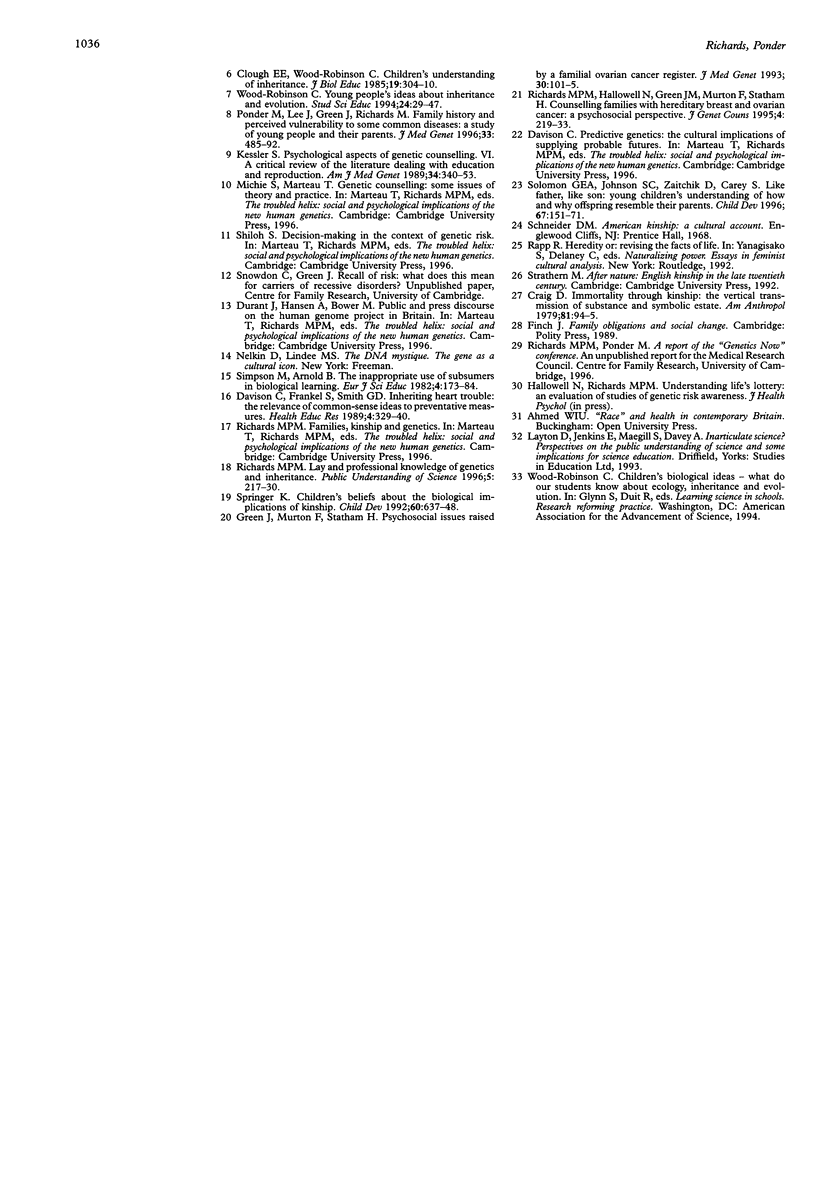
Selected References
These references are in PubMed. This may not be the complete list of references from this article.
- Griffiths A. J. What does the public really need to know about genetics? Am J Hum Genet. 1993 Jan;52(1):230–232. [PMC free article] [PubMed] [Google Scholar]
- Kessler S. Psychological aspects of genetic counseling: VI. A critical review of the literature dealing with education and reproduction. Am J Med Genet. 1989 Nov;34(3):340–353. doi: 10.1002/ajmg.1320340310. [DOI] [PubMed] [Google Scholar]
- Ponder M., Lee J., Green J., Richards M. Family history and perceived vulnerability to some common diseases: a study of young people and their parents. J Med Genet. 1996 Jun;33(6):485–492. doi: 10.1136/jmg.33.6.485. [DOI] [PMC free article] [PubMed] [Google Scholar]
- Solomon G. E., Johnson S. C., Zaitchik D., Carey S. Like father, like son: young children's understanding of how and why offspring resemble their parents. Child Dev. 1996 Feb;67(1):151–171. [PubMed] [Google Scholar]
- Springer K., Keil F. C. On the development of biologically specific beliefs: the case of inheritance. Child Dev. 1989 Jun;60(3):637–648. [PubMed] [Google Scholar]


